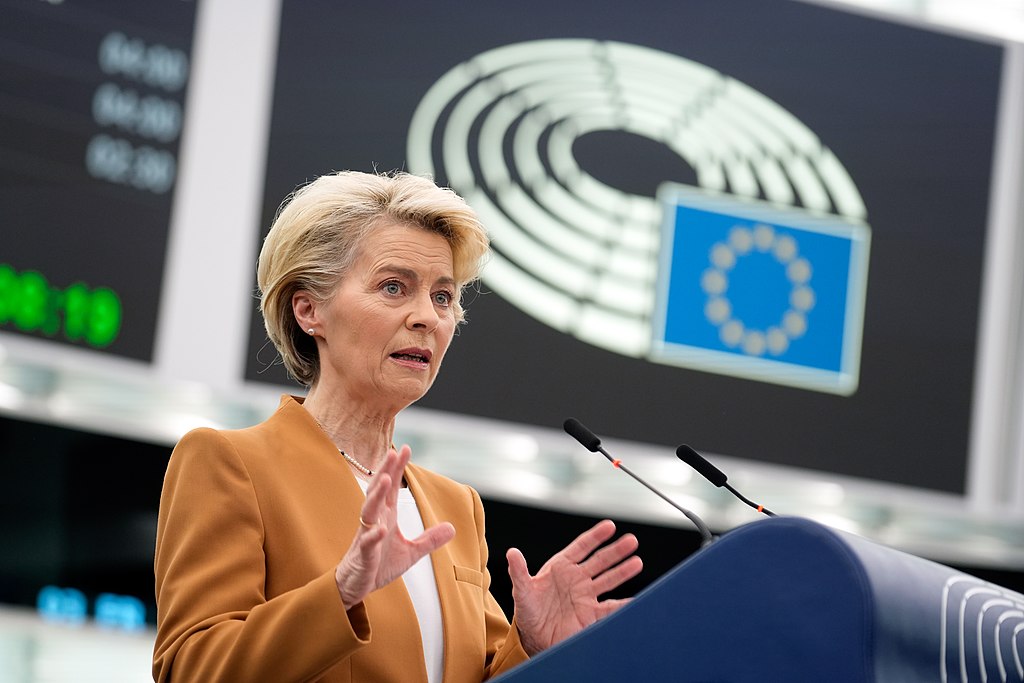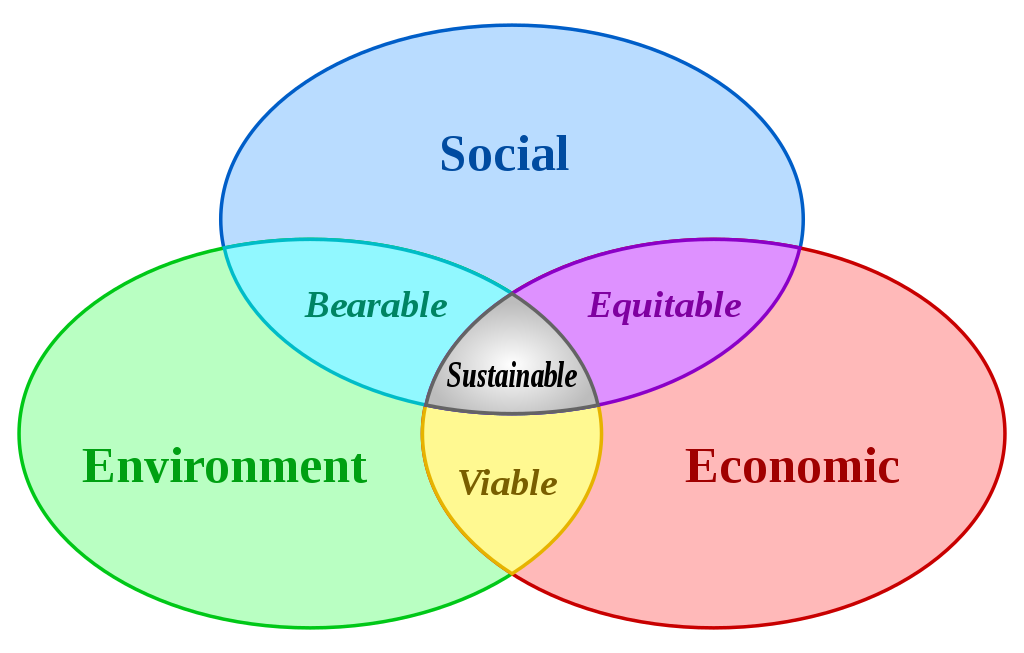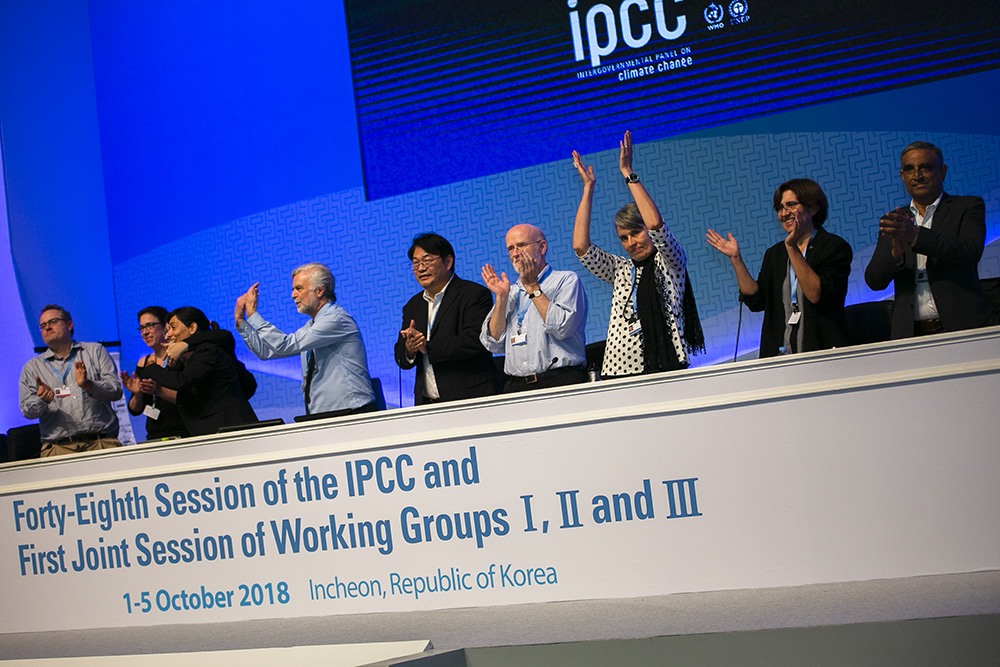On March 20, 2023, the Intergovernmental Panel on Climate Change (IPCC) published the final instalment of its mammoth sixth assessment report, almost certainly the final warning to limit global temperatures to 1.5 degrees Celsius. Based on current policies, by the publication of the next IPCC report in 2030, the remaining carbon budget will have been used up. Given this grim trend, can anyone honestly say they have confidence in the future and the potential to overcome this unfolding societal crisis?
All around there is a resignation, a generational pessimism, and disillusionment among young people towards the political system and where society is headed. Does anyone still believe the international climate targets can be met? It should be indication enough that many recent protest movements have started from and been spearheaded by youth civic activism. With a starting point of 1.5 degrees as the limit beyond which a catastrophic tipping point causes irreparable damage to the biosphere, we should seriously doubt the ability to meet such a goal.
The recently published Assessment Report 6 (AR6) makes for a sobering read, yet the IPCC arguably uses very liberal carbon budgets that allow for between a 17 and 83% probability of missing the 1.5-degree temperature limit and the report relies almost exclusively on emissions reduction pathways assuming overshoot and carbon removal methods. Even then, governments are nowhere close to credible legislative action. The independent scientific monitoring group Climate Action Tracker predicts current national policies and actions will lead to a median climate scenario of 2.7 degrees. This warming would be so significant that there would be a high to very high cascading climate risk across all aggregated, cross-system, and global-scale impacts cited as “reasons for concern” in AR6.
While some national emission reduction rates have been fast, the mitigation has been intermittent rather than continuous and is dwarfed by emission increases in the rest of the world. Reductions achieved within national borders have also been highly linked to offshoring and outsourcing of emission-intensive manufacturing. Yet, the grimmest prospect for the achievability of any climate commitment is arguably the untenability of current preferred means. The dominant method of reaching a net zero economy, which is used and advocated by almost every signatory to the Paris Agreement, is based on the biophysical myth and assumption that it is possible to decouple emissions from throughput in economic activities.


From national to international policy, including the EU and major institutions for governance such as the OECD, UNEP, and the World Bank, ‘green growth’ is the de facto strategy employed and promoted to solve the climate crisis, asserting that technological change and substitution will increase the ecological efficiency of the economy. It promises a ‘decoupling’ of economic output from environmental damage. However, physical and hard laws, such as the thermodynamic law of conservation of energy, set a minimum quantity of resources necessary for the production of material objects. The law of entropy sets biophysical constraints on the ability to improve the effectiveness and efficiency of energy and natural materials’ conversion chains (resources) so that the resulting impacts are minimised. Technological optimisation and productivity improvement of resource use are only possible to a certain extent and at a certain cost before the recovery and reuse of the same matter-energy is infeasible. This results in an inescapable dependence on corresponding primary resources.
Some sectors are especially difficult to decouple, and evidence shows that non-energy sector emissions, such as from industry and agriculture, are major roadblocks. Meanwhile even in the energy sector, which has seen recent dropping prices in renewable energy technology, investments in fossil fuels have never been more lucrative.
Furthermore, the economic law of increasing marginal cost, or ‘best-first principle’, indicates that the most readily available and cheapest materials and resources are mobilised first. This makes the mobilisation of remaining stocks more complex, more technologically demanding, more expensive, and more energy- and pollution-intensive. Consequently, efficiency gains and pollution abatement only become more difficult as the economy gradually decouples. Empirically, declining marginal rates of improvement are observed for decarbonisation efforts in the energy transition with increasing energy expenditures, ore grade decline and resource depletion, while non-energy sectors show a trend of stagnation.
What green growth also demonstrates is the ubiquitous post-politics of sustainability and the discourses of climate delay. Like sustainable development, the politics of green growth are governed by a “carbon consensus” of business-as-usual strategies with the seemingly innocent promise of being able to make everyone happy, even as it privileges and maintains the power of business groups. It is a discourse of technocratic fixes and sustainable branding of firms, which relies on heavily scrutinised markets in carbon credits and carbon removal projects while promising innovation and future technologies, which by definition are unproven to work and certain to arrive too late.


Necessary radical political action is undermined by the silencing of crucial social differences between the rich and the poor, the historically responsible and the victim, and the private interest and the public good. This creates a post-political condition painting everyone as an equal victim of an abstract natural ‘enemy’. It denies conflicts between the environment and economic profit and manages antagonisms between interest groups through a consensual depoliticised order of ‘sustainable goals’, for which there is no real alternative.
Likewise, the promotion of minimal non-transformative action and shifting the burden of responsibility to ambiguous future innovation and consumer choices are fundamental drivers of climate delay. It is no wonder that across scientific reviews on green growth, there is no empirical evidence of absolute, permanent, and sufficiently rapid decoupling of economic growth from critical environmental pressures at the scale necessary to realise the international climate goals. At the global level, such sufficient decoupling would require an average annual decline in carbon intensity of economic output at 8%. Today, the average annual decline is less than 1%.
Finally, beyond a failure of target-setting and implementation, there is also a systemic procedural failure to address these climate ambitions. Democratic political competition and inclusive democratic institutions have been found to be crucial for climate policy adoption, yet more than half of the world, including some of the biggest emitting countries such as Russia, China, and Saudi Arabia, does not follow democratic political practices. Beyond domestic mobilisation, it is also doubtful that authoritarian rulers will be accountable to international consensus politics.


However, even among the ‘democratic’ super polluters, climate change continues to be a largely partisan issue regarding the passing of ‘hard’ climate policies such as taxes and regulations, while agendas and programmes also tend to change with every electoral cycle. All it takes is one Trump to cause a lag or even reverse prior gains, and in such a landscape, New Year’s resolution politics like the Paris Agreement remain ineffective. Moreover, many so-called ‘democracies’ behave much more like plutocracies in practice, run by oligarchs, and political and media elites with vested interests and fossil fuel assets.
This paints a grim picture of the future, and apocalyptic writing has some significant moral implications. Narratives and discourses have a tremendous impact. Research in climate psychology warns that doomsday narratives can cause excessive climate anxiety and lead to interpretive or implicatory climate denial as a form of emotion-focused coping, which can threaten to paralyse climate engagement. In a media landscape where there is already a bias toward negative stories, difficult and disturbing narratives can cause dissociation and indifference among those who lack psychological resources for problem-focused coping. However, overemphasis on optimism can instead lead to an overreliance on a status quo of inaction, be disingenuous to people’s true fears, and be offensive to groups whose reality is climate tragedy and ecological oppression.
Moreover, political moderates and conservatives, those with individualistic worldviews or those who feel less burdened by the climate crisis, often exhibit lower risk perception and outcome efficacy, and to this audience, a doomsday narrative may be necessary. However make no mistake—pure negativity is as good as surrender, and itself a discourse of climate delay. Yet the state of silence on the infeasibility of 1.5 degrees and the unworkable politics of green growth reveals a stealth crisis in the unfolding apocalypse of the status quo.
The unprovoked quiet of business as usual is a warning sign of empty promises, of systematic avoidance of the conflicts of sustainability for business interests and consumers, of climate delay to an eruption of disaster and discontent. In the words of political-economic geographer Erik Swyngedouw: the apocalypse will be disappointing.
By Albin Emanuel Brattberg
October 3, 2023
This article is largely based on a previous article written for The Perspective Magazine 2023 No. 2 to showcase our collaboration with the Magazine committee now that the magazine archive is available on our website in digital form.
(Any opinions expressed in the article are solely those of the author and do not necessarily represent the views of UPF Lund or The Perspective Webzine)








